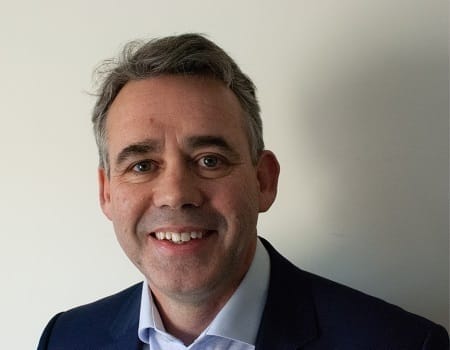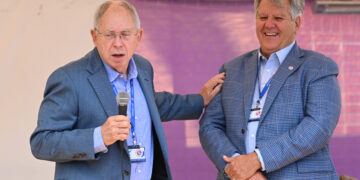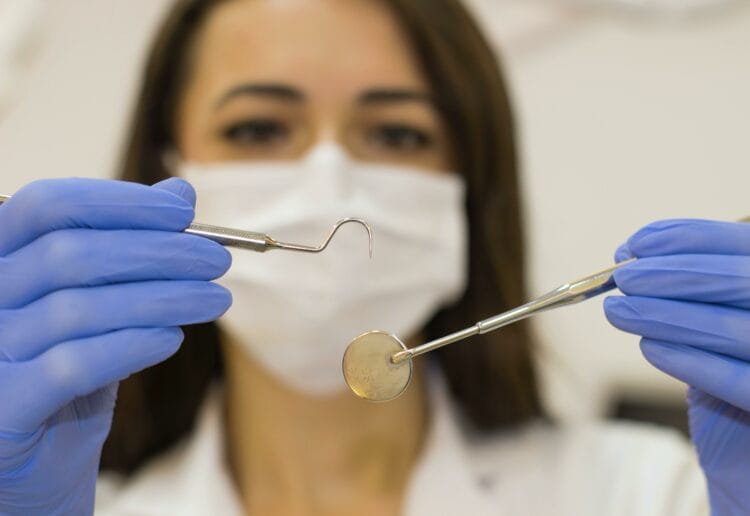UNIONS have warned that NHS dentistry is “hanging by a thread” with some patients facing two-year waits for routine check ups.
Data from NHS England and NHS Wales shows more than 2,500 dental posts — made up of 951 dentists — stopped treating NHS patients.
In Berkshire West CCG, which includes Wokingham and Reading boroughs, the number of NHS dentists has decreased by 9% in the last five years.
Other areas of the country have faired worse.
The number of NHS dentists in two English CCGs fell by more than a quarter in the year ending March 31, 2021.
The worst-affected of these was Portsmouth CCG, which lost 26% of its NHS dentists over 12 months.
The British Dental Association (BDA) said that unhappiness with the NHS dental contract was a key factor.

Shawn Charlwood, chair of the BDAs general dental practice committee, warned significant numbers of dentists were planning on leaving the NHS.
“NHS dentistry is hanging by a thread, because without NHS dentists, there will be no NHS dentistry,” said Mr Charlwood.
“It’s a really serious situation and every dentist that is lost or every vacancy for NHS dentistry that remains unfilled affects thousands of patients in terms of care and their ability to access care.”
Some practices across the country have struggled to fill vacant posts.
“Every practice struggling to fill vacancies translates into thousands of patients unable to access care,” said Mr Charlwood.
“Years of failed contracts and underfunding have meant a growing number of dentists no longer see the NHS as a place to build a career. The pandemic has upped the ante, and we are now facing down an exodus.
“Ministers have failed to grasp that we can’t have NHS dentistry without NHS dentists.
“Rather than punishing colleagues, we need a service that recognises and rewards commitment.”
Concern has also been raised about the usefulness of NHS England’s ‘Find a Dentist’ tool, which was created to help patients find an NHS dentist in their area.
BBC analysis shows around 75% of practices in England had not updated the site to show whether they were accepting NHS patients or not within the last three months.

Interim director of Healthwatch, Chris McCann, said getting up to date information as to where people can access service is a “real issue”.
“Information on practices on the NHS website can be out-dated,” he added. “We’ve seen some people having to contact up to 20 practices before finding someone to take them.”
Mr McCann said that struggling to find a dentist can affect the quality of people’s lives.
“The main impact will be the increase in waits for treatment,” he said. “We’ve heard examples of people being told that they have to wait for up to two years for routine check-ups, and up to six weeks for emergency care.
“These lengthy waits can lead to more serious problems and long term that leads to increased pressure on the NHS like we’ve even seen, and in the most extreme cases people performing DIY extractions.”
And there is an issue of accessibility too, he said.
“We know that some of those who have really struggled the most have been children, disabled people, people who live in care homes.
“It’s a twin crisis of accessibility and affordability.”
Mr McCann said that for some people even the NHS charges can be a struggle.
“We did research last year and I think around 60% of people find that NHS charges are expensive,” he said. “But that’s if you can get an NHS dentist. What really puts people under pressure is when they can’t get an NHS dentist and they’re being pushed towards private treatment.”
Until last year, NHS dentists in England and Wales had been using the units of dental activity (UDA) system.
UDAs are used to measure a practice’s activity. Courses of treatment — for example, a check up or a filling, are banded into UDAs.
Practices are set targets of UDAs to achieve, and if that target is missed, the contract holder and the practice can be forced to pay back money – known as claw back.
Critics have claimed the UDA system does not incentivise preventative work, and is a key reason for dentists leaving the health service.
Wales moved away from the UDA system in 2020.
Mr McCann said that conversation about reform of the dental contract has been ongoing since 2009.
“What we would like to see is the NHS and the Department of Health and Social Care going back and having a real look at the NHS contract to see what root and branch reform is required of it to make it work,” he said.
“For us it’s about building back a system where NHS appointments are available to people so that further health inequalities aren’t deepened.”
An NHS spokesperson said that additional funding has been provided to set up 600 urgent dental centers across England so patient services could be maintained during the pandemic.
“People should continue to come forward for the dental care they need, and the care and treatment of people who need it most should be prioritised,” they said.
























